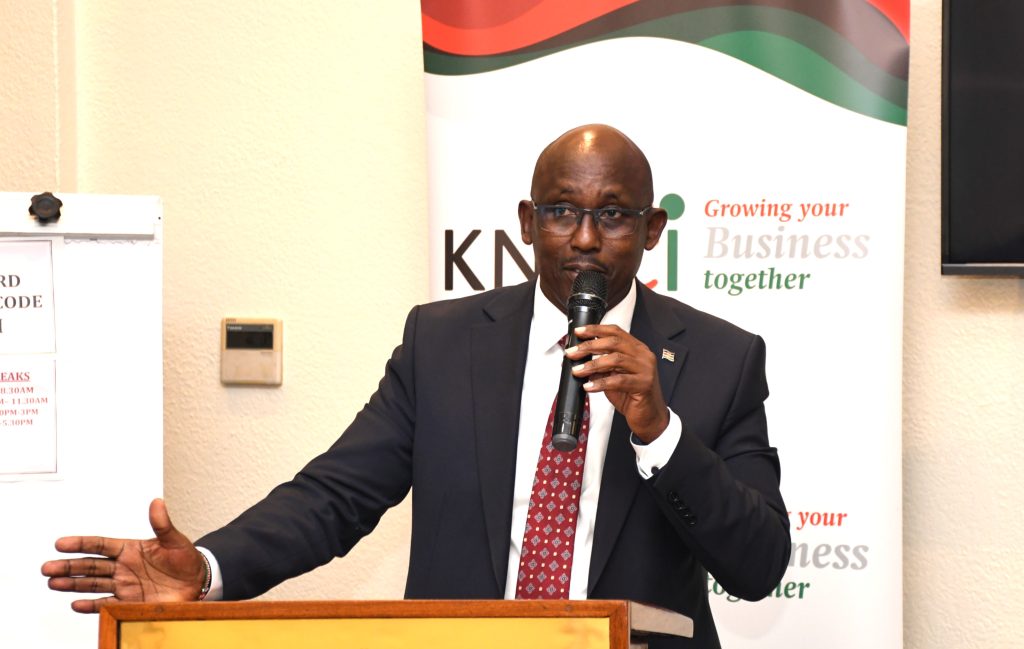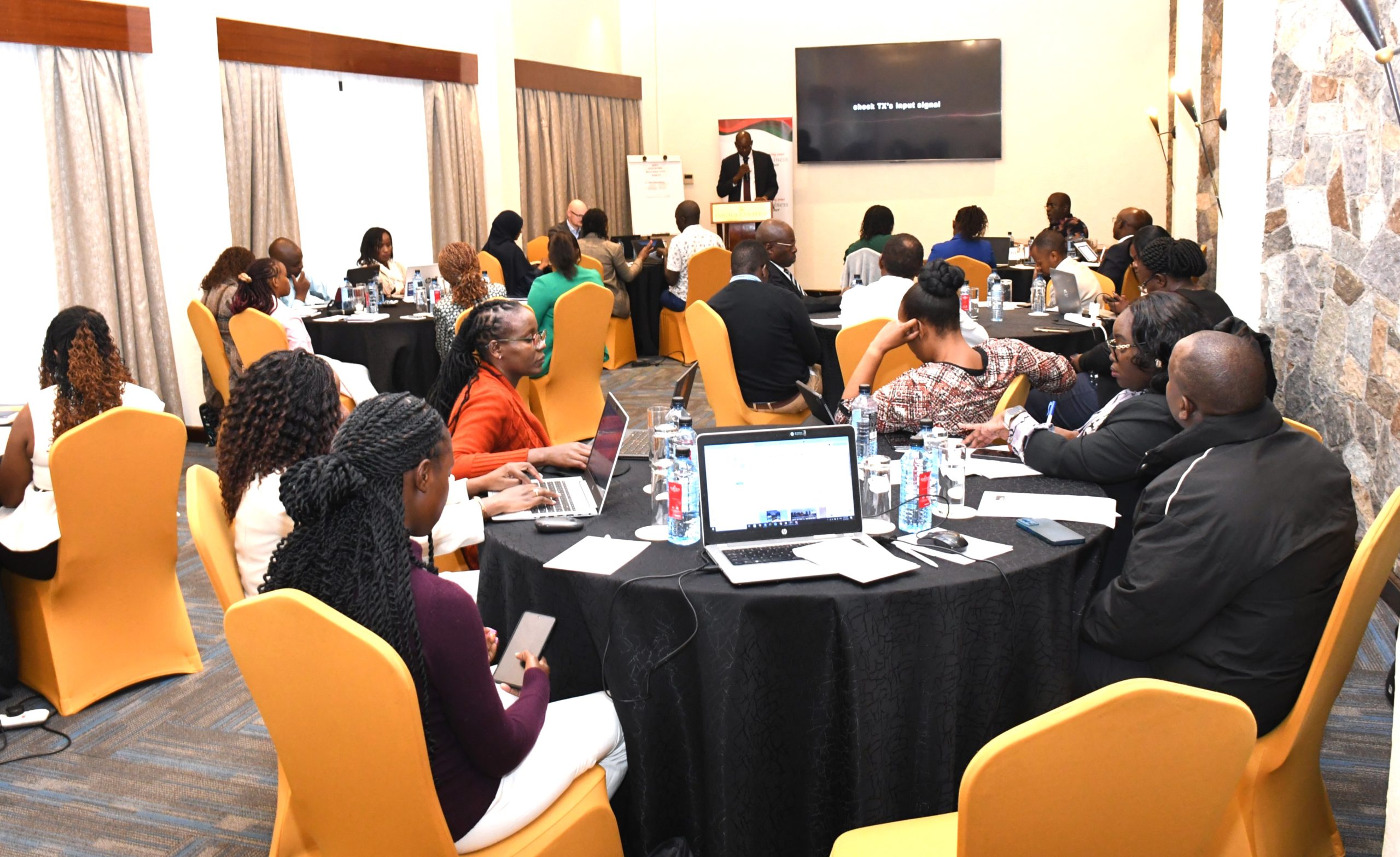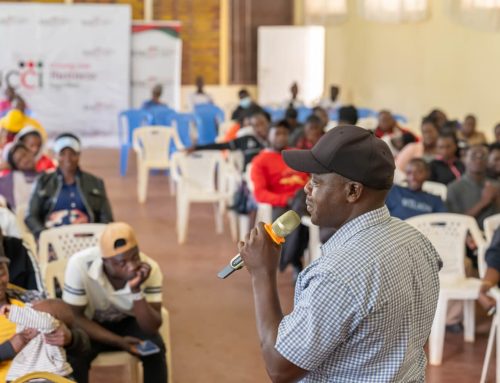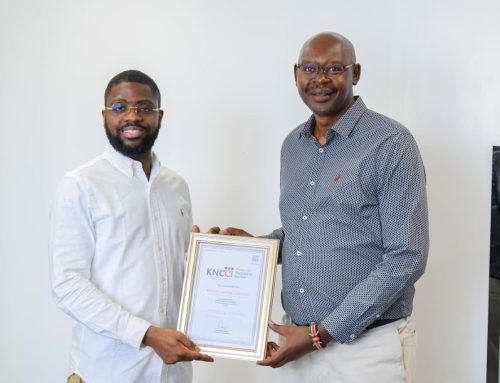
The Kenya National Chamber of Commerce and Industry (KNCCI) today reaffirmed its commitment to advancing responsible business practices during the Private Sector Review of Kenya’s National Action Plan (NAP) on Business and Human Rights, held at the Sarova Panafric Hotel, Nairobi.
The meeting, convened in partnership with the Department of Justice (DOJ) and the Danish Institute for Human Rights (DIHR), brought together stakeholders from government, development partners, civil society, and the private sector to evaluate progress on the implementation of the NAP, identify gaps, and chart a way forward.
Speaking during the event, KNCCI President Dr. Erick Rutto emphasized the significance of the NAP in safeguarding rights while strengthening competitiveness and market access for Kenyan businesses:
“The adoption of the NAP was a milestone, but the real test lies in its implementation. For Kenya’s private sector, this is not just about compliance—it is about competitiveness, reputation, and the future of our enterprises in global markets. KNCCI is committed to ensuring that businesses, especially MSMEs, are empowered to thrive responsibly, sustainably, and competitively.”

Kenya remains one of only two African countries to have developed a NAP on Business and Human Rights. The plan, adopted by Parliament in 2022, provides a framework for the State to protect individuals and communities from business-related human rights abuses, while guiding companies to respect human rights in their operations. It also promotes human rights due diligence and strengthens access to remedies for victims of harm.
KNCCI has played a central role in advancing the NAP’s implementation. The Chamber:
- Sits on the NAP Implementation Committee, representing enterprises nationwide.
- Has partnered with DIHR to conduct sensitization forums across more than 10 counties, engaging hundreds of SMEs.
- Introduced enterprises to the “Protect, Respect, and Remedy Framework” while building awareness of the links between responsible business practices, sustainability, and competitiveness.
Through these efforts, KNCCI has positioned itself as a leading advocate for integrating human rights into business conduct, while ensuring that policies remain practical and business-friendly.
“With growing due diligence and sustainability requirements in markets such as the European Union, responsible business conduct is no longer optional—it is a license to compete. By embedding human rights into our operations, we not only strengthen investor confidence but also secure Kenya’s place in global value chains,” Dr Erick Rutto adds.
However, challenges remain. Many SMEs have limited awareness of human rights due diligence requirements, access to remedies is constrained by costs and procedural barriers, and government implementation processes face delays.
Dr. Rutto outlined KNCCI’s priorities for the next phase of implementation:
- Deepening capacity-building for SMEs to meet both EU due diligence requirements and domestic NAP obligations.
- Strengthening KNCCI’s advocacy role to ensure enabling government policies.
- Supporting businesses to embed human rights due diligence in daily operations.
- Expanding partnerships with international stakeholders to align Kenyan enterprises with global best practices.
 KNCCI Chief Executive Officer, in his welcoming remarks, underscored the private sector’s central role in shaping Kenya’s future competitiveness:
KNCCI Chief Executive Officer, in his welcoming remarks, underscored the private sector’s central role in shaping Kenya’s future competitiveness:
“Responsible business conduct is now a global competitiveness issue. As we prepare to seize AfCFTA opportunities and meet the requirements of export markets such as the EU, aligning with the NAP will not only strengthen Kenya’s domestic landscape but also enhance our credibility and access in regional and global value chains.”
The meeting marked an important step in ensuring that Kenya’s private sector not only complies with global human rights standards but also leverages them to build resilience, attract investment, and secure new market opportunities.







Leave A Comment